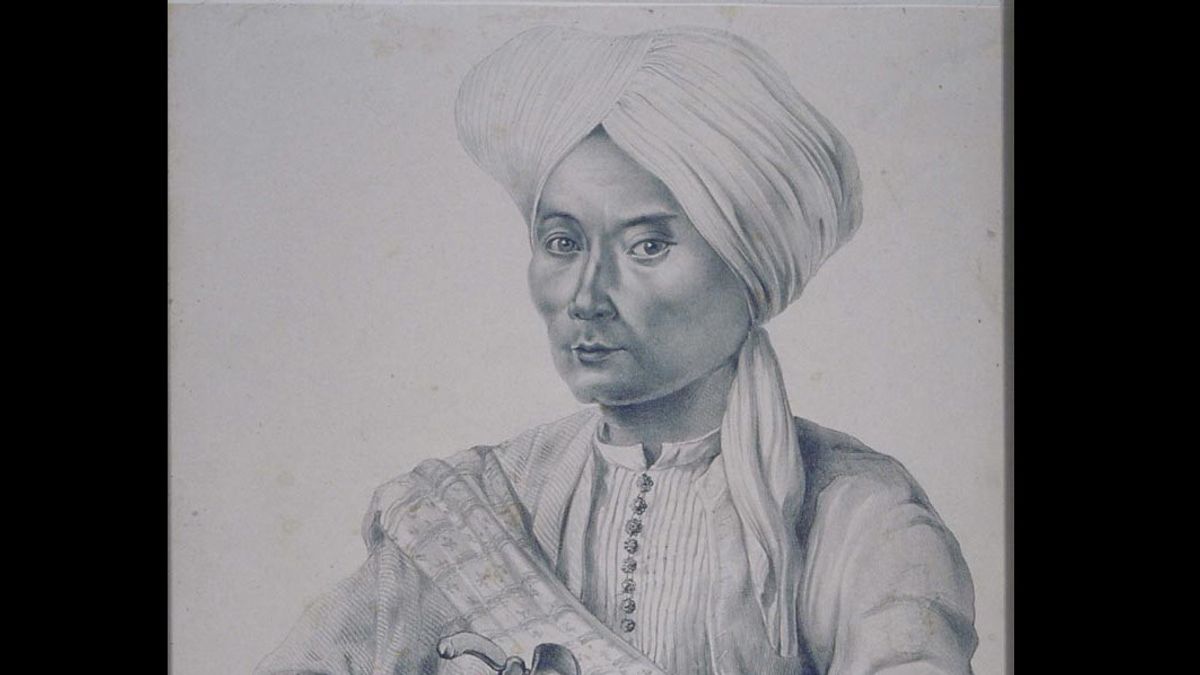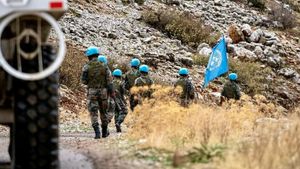JAKARTA - Prince Diponegoro is an important figure in Indonesian history. His enthusiasm against the colonial injustice was widely remembered in the Java War (1825-1830). The resistance troubled the Dutch. Diponegoro is known as a humanist. He's also a schemer. One way to hone this skill is chess.
Through chess, Diponegoro learned how to turn off the opponent's moves with clever tactics. There are many things that can be imitated from the figure of Diponegoro. Diponegoro's closeness to nature is one of them. According to Javanese belief, closeness to nature is a form of human sensitivity and spiritual integrity.
In order to perpetuate this, Diponegoro chose a hobby of gardening. He is also very animal lover, especially horses and birds. This closeness has been present since he was a child. When he was growing up, his closeness to nature was increasingly visible from Diponegoro's frequent trips to imprisonment.
Throughout Diponegoro in Java, he has made many places for the ritual of asceticism. The location is in the Selorejo area to Bayumeneng (Kulon Progo). Some are located near the lake, waterfall, and river. Historian. Peter Carey revealed that it was during his hermitage that Diponegoro perpetuated his hobby of gardening as well as being an animal lover. Diponegoro then planted many plants (flowers, vegetables, fruits and trees). He also found a variety of animals in the same location.
"Then, in all the places that Diponegoro has visited, there are also animals: fish in their ears in Selorejo, turtles in Pengging, turtles in Banyumeneng, crocodiles in Cingcingguling River. At the Prince's last hiding place in Remo (Karanganyar) Regency, Banyumas, there was also a tiger he encountered during his wanderings at the end of the Java War (11 November 1829 to 9 February 1830), one of which became his protector and was named Tepang, "said Peter. Carey in the book Sisi Lain Diponegoro (2017).

Even so, Diponegoro's hobby is an ordinary activity that is often carried out by a Javanese in general. Apart from gardening, Diponegoro then took part in raising birds. In particular, doves and cockatoos. Diponegoro also often spends time looking after and caring for his horses.
Diponegoro has a large horse stable. It was so big, it took 60 people to care for Diponegoro's horses in Tegalrejo. However, when the Java War broke out, Diponegoro was forced to leave behind many of his horses.
The only horse that accompanied him at that time was named Kiai Gitayu, a black and muscular horse. Because of that, when Diponegoro rode his horse, the aura of the leader of Diponegoro was able to move all Javanese people against the Dutch colonialists with enthusiasm: Forward, Serbu, Attack, Terjang. As stated by Chairil Anwar in his legendary poem, Diponegoro (1945).
Diponegoro played chessApart from gardening and raising animals, Diponegoro has another interesting hobby, namely playing chess. In every spare time, Diponegoro always shows passion in this strategy game.
According to him, playing chess is the right tool to combine intelligence and fighting spirit in the beauty of strategy games. Black pawns do not know the white pawn scheme, and vice versa. By playing chess, Diponegoro seemed to have schemed his troop pieces during the Java War.
That spirit was seen when Diponegoro spent his free time playing chess with one of Sultan Hamengkubuwono I's daughters, Raden Ayu Danukusumo. Together with this mother from Danurejo II, the two often engage in strategy battles on the black-and-white board. Therefore, Raden Ayu Danukusumo is mentioned in the Babad Dipanegara (1894) by the Javanese Prince himself as the main friend of playing chess.
"In his chronicle, the woman referred to him as a friend to play chess, a game that Diponegoro really liked. More importantly, this woman was known for her knowledge of Javanese-Islamic reading and her mastery of the Pegon script. Two kinds of skills admired by Diponegoro, who also wrote in pegon letters, "said Peter Carey in another book, The Power of Prediction: Pangeran Diponegoro and the End of the Old Order in Java 1785-1855 (2011).
The manuscripts in the collection of Raden Ayu Danukusumo include, among others, Bustan as Salatin or 'Taman Raja-kings' in Malay by Nüruddin ar-Räniri. As well as al-Tuhfa al-mursala ila rüh an-Nabi (Sentence of Souvenirs to the Spirit of the Prophet) by Muhammad ibn Fadl Alläh al-Burhänpüri. The two works are said to have been studied by Diponegoro when he was young.
Thanks to his persistence in learning from scripts and playing chess, Diponegoro's intuition became more and more honed. In the end, the game allowed him to grasp people's character from their faces (hunches). This was proven during the early days of the Java war. Pangeran Diponegoro seemed to choose officials, commanders, and religious advisors based solely on the observations of the knowledge he had. Moreover, Diponegoro in the battle showed that he was also a master tactician.

Then, it is known that his enjoyment of playing chess is still being practiced even though Diponegoro is no longer in Java. Alias when he was at the exile Fort Nieuw Amsterdam in Manado (June 1830-June 1833). Quoted from Wardiman Djojonegoro in the book Brief History of Diponegoro (2019), even though he was in exile, Diponegoro could not seem to be separated from his old hobby. In fact, Diponegoro's spirit of life in exile was great. energy too. This can be seen from his joy in carrying out his hobbies, be it raising birds and playing chess.
"The prince also spends a lot of time on his feet. He also likes to play chess and, like many Keraton people, he is a skilled horse rider, ”concluded Wardiman Djojonegoro.
MEMORY OtherThe English, Chinese, Japanese, Arabic, and French versions are automatically generated by the AI. So there may still be inaccuracies in translating, please always see Indonesian as our main language. (system supported by DigitalSiber.id)













